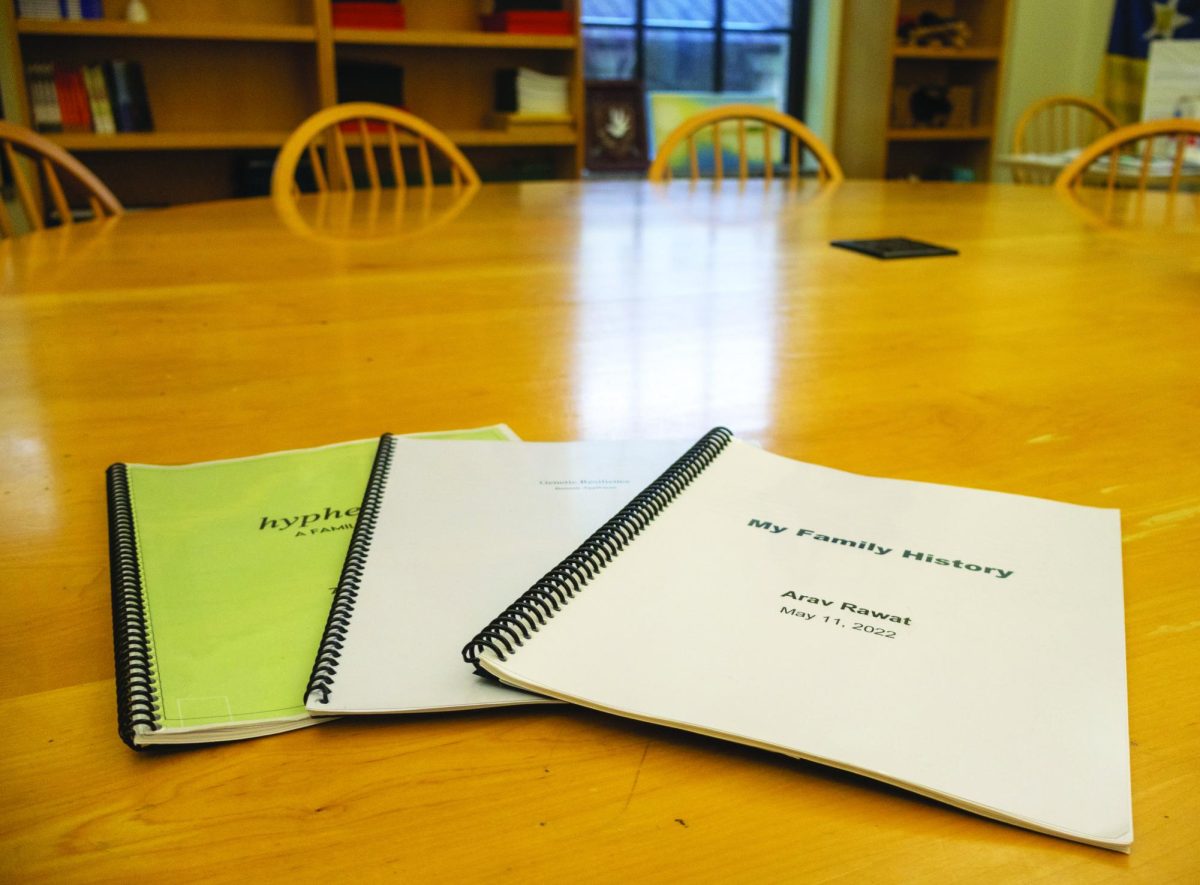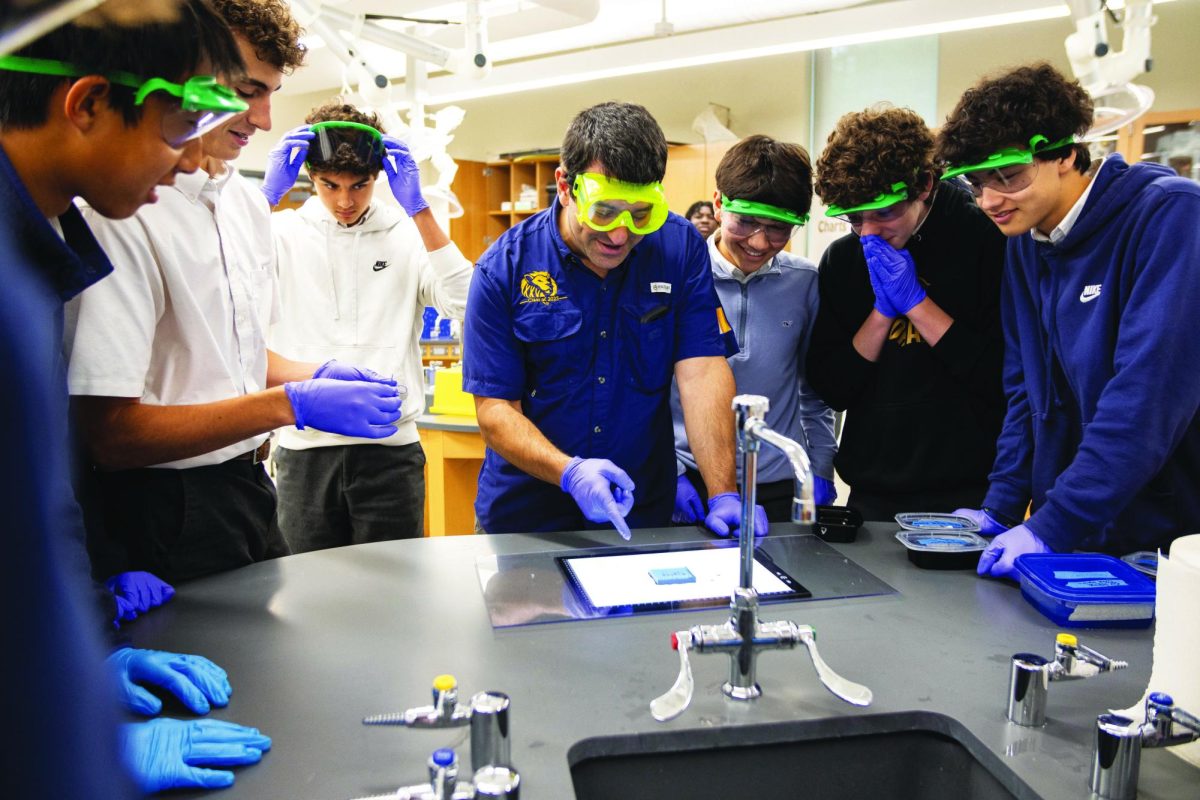Every year, sophomores are given a momentous task: the legendary Family History Paper.
Each year, each student interviews his family members to try to find his story: where he came from, what life for his parents and grandparents were like, and how he ended up here.
No story is the same nor is the takeaway from it, but every single student writes his story.
But why? Why does one’s family history matter? What can one gain from looking into the past when trying to better his present and future? Or is his paper just a sophomore year assignment with no true significance besides learning some cool family trivia?
When the project was first introduced 40 years ago, it lacked deep meaning. However, around 15 years ago, there was a pendulum shift, and the paper gained a unique purpose.
“Back then, it was mainly just a long research paper on your family and where you came from,” Victor F. White Master Teaching Chair David Brown said. “The paper has evolved over the years since then. Once the character and leadership program led by (Malcolm K. and Minda Brachman Master Teaching Chair Dr. Martin) Stegemoeller took hold here about 15 years ago, it was suggested that we combine family history with character and leadership, so it underwent some significant revision.”
This change shifted the focus of the paper for students; now, they talk not only about their family, but also themselves. Looking deeper, students begin to discover how their family has shaped them and consider the kind of person they want to become.
“Your family has a telos,” Stegemoeller said. “Your telos has been shaped by that telos. Is that the telos you want? Are you gonna tweak it? Why? Why not?”
The paper forces students to choose whether or not they want to continue with their own family’s virtues, revise them or even disregard them altogether. Over the years, many aims and goals that students have discovered are not necessarily positive things.
“I don’t have a bunch of values that are just in my DNA,” Dr. Stegemoeller said. “They are transmuted to me through my family, so that family makes a big difference in your own views. If you’re not self aware, if you’re not grateful, if you don’t even know where you came from and if you don’t have a pretty concrete sense of the virtues that are going to carry you through challenges, you’re not going to thrive.”
Due to this importance, self-knowledge is a virtue that is emphasized at the school, but many writers believe it can only be achieved through learning about your roots and where you came from.
“One of the important tenets of character and leadership is asking hard questions about who you are and what you believe and who you want to be,” Brown said. “And it’s really hard, we believe, to do that sufficiently unless you know where you’ve come from, and the goals and aims of your family members who came before you and how that has contributed to who you are.”
In addition to the personal character aspect of the paper, it also serves as a way for students to learn about their family’s history. Often, students hear impactful stories or uncover niche details that alter their entire perspective of their family’s history.
“I’ve discovered that a lot of students are excited to find out some things they didn’t know were true about their family,” Brown said. “It seems that a lot of the older generations, grandparents who perhaps went through wars, are not eager to talk about such things. They sometimes are hurtful, but when they’re asked about it directly, things come out that students go, ‘whoa, that’s in my history.’”
These stories can also help students better understand their family’s hardships and the virtues that came from it.
“There’s kids whose families have had a decent amount of crime in the past, or whose parents are first or second generation immigrants,” Stegemoeller said. “And the paper lets them throw themselves into their family members’ lives and tell the stories of where they’re coming from.”
So not only does the project leave an impact on the student, but also their family as a whole.
“A lot of families spend a lot of time on it together,” Dr. Stegemoeller said. “It brings them together. And a decent number of boys self-report that it’s the most meaningful assignment they’ve ever done. They don’t need to self-report that, so I take them pretty seriously.”
For teachers, the Family History Paper allows them to better connect to their students and learn their story.
“The main thing I get out of it is the chance to sit for 45 minutes to an hour with students and talk with them about their lives,” Brown said. “We’re not just talking about their writing, I’m getting to know them on another level.”
Both Stegemoeller and Brown have written Family History Papers of their own, researching their respective family history to better understand their own virtues and life values.
“I just did it on my own five summers ago,” Dr. Stegemoeller said. “It was right before my twins came along, so I thought a lot about how to raise them. They’re being raised more or less diametrically opposite of how I was raised, so it was very valuable to me personally to think through all that.”
Like Stegemoeller, Brown was able to discover more about himself through his writing, finding that he appreciated his family even more and was able to further deepen his bond with his family.
“As I wrote about them, things would come to my mind that I hadn’t considered,” Brown said. “The more I wrote and explored, the more I understood clearly how I am a part of them and how I am a product of them. That was really eye-opening. I thought I was a pretty independent person, but things I said I would never say to my children that my parents always said to me, I say all the time.”
However, the paper also helped Brown to branch out from his familial beliefs and develop his own ideas.
“In some ways, I have become more independent,” Brown said. “I pulled away from some of the beliefs that my parents and my forefathers had. It was kind of a revelation to me that things I swore to myself earlier in my life I would never depart from, I have departed from because I had become my own person and developed my own beliefs and ideas.”






